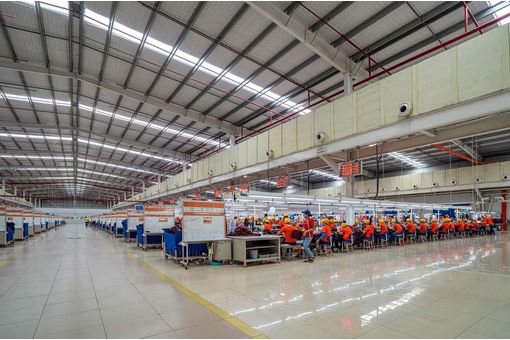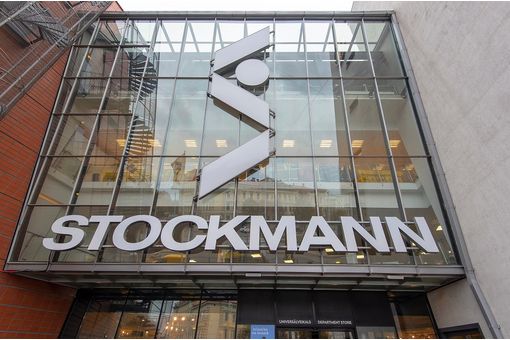Interviews
EU agrees to maintain trade preferences for developing countries
05 Aug '08
3 min read
The European Commission has welcomed yesterday´s adoption by EU Member States of a new Regulation applying the EC's Generalised System of Preferences (GSP) for the period from 1 January 2009 until the end of 2011. This decision will allow the EU to maintain preferential access to its market for 176 developing countries.
The renewed preference system will be updated and improved, ensuring that GSP is targeted at those countries that need it most. GSP provides real economic value to developing countries, with € 57 billion worth of trade under the scheme in 2007.
EU Trade Commissioner Peter Mandelson said: "The continuation of GSP will ensure stability and predictability for beneficiaries and traders in the EU and developing countries. GSP is a vital tool of our pro-development EU trade policy."
As a result of re-calculations to reflect the evolution of trade, preferences for specific product groups will be re-established for six beneficiary countries of GSP (Algeria, India, Indonesia, Russia, South Africa and Thailand). Preferences will be suspended for one country, Vietnam, for Section XII products (footwear and some other products).
These adjustments are triggered automatically when a country's performance on the EU market goes above or below a certain threshold. This procedure follows strict rules, and helps to ensure that the benefits of GSP preferences are targeted at the countries that need them most. Suspension of preferences, called "graduation", reflects the fact that a particular country is competitive in the EU market for the products in question.
Alongside the standard GSP scheme, the EU also offers a special incentive arrangement for Sustainable Development and Good Governance, known as GSP+. GSP+ offers additional preferences to support vulnerable developing countries in their ratification and implementation of relevant international conventions on human and labour rights, environmental protection, and good governance. Interested countries have until 31 October this year to apply in order to benefit for GSP+ preferences from January 2009.
Everything But Arms, the EU's open-ended duty-free, quote-free regime for Least-Developed Countries, which also operates under the GSP Regulation, is also maintained.
Background:
The GSP is an autonomous trade arrangement through which the EU provides non-reciprocal preferential access to the EU market to 176 developing countries and territories. In 2007, developing countries exported €57 billion worth of goods under GSP, with a nominal duty loss for the EU of €2.5 billion. At present, 14 beneficiary countries receive the additional preferences offered under the GSP+ incentive arrangement.
These preferences will lapse at the end of the year and both existing and potential new beneficiaries meeting the applicable criteria will need to apply before 31 October 2008 if they wish to receive GSP+ treatment from January 2009. A special arrangement for the 50 least-developed countries (LDCs), known as the "Everything But Arms" (EBA) initiative, provides the most favourable treatment of all, granting the LDCs "duty-free and quota-free" access to the EU market.
The renewed preference system will be updated and improved, ensuring that GSP is targeted at those countries that need it most. GSP provides real economic value to developing countries, with € 57 billion worth of trade under the scheme in 2007.
EU Trade Commissioner Peter Mandelson said: "The continuation of GSP will ensure stability and predictability for beneficiaries and traders in the EU and developing countries. GSP is a vital tool of our pro-development EU trade policy."
As a result of re-calculations to reflect the evolution of trade, preferences for specific product groups will be re-established for six beneficiary countries of GSP (Algeria, India, Indonesia, Russia, South Africa and Thailand). Preferences will be suspended for one country, Vietnam, for Section XII products (footwear and some other products).
These adjustments are triggered automatically when a country's performance on the EU market goes above or below a certain threshold. This procedure follows strict rules, and helps to ensure that the benefits of GSP preferences are targeted at the countries that need them most. Suspension of preferences, called "graduation", reflects the fact that a particular country is competitive in the EU market for the products in question.
Alongside the standard GSP scheme, the EU also offers a special incentive arrangement for Sustainable Development and Good Governance, known as GSP+. GSP+ offers additional preferences to support vulnerable developing countries in their ratification and implementation of relevant international conventions on human and labour rights, environmental protection, and good governance. Interested countries have until 31 October this year to apply in order to benefit for GSP+ preferences from January 2009.
Everything But Arms, the EU's open-ended duty-free, quote-free regime for Least-Developed Countries, which also operates under the GSP Regulation, is also maintained.
Background:
The GSP is an autonomous trade arrangement through which the EU provides non-reciprocal preferential access to the EU market to 176 developing countries and territories. In 2007, developing countries exported €57 billion worth of goods under GSP, with a nominal duty loss for the EU of €2.5 billion. At present, 14 beneficiary countries receive the additional preferences offered under the GSP+ incentive arrangement.
These preferences will lapse at the end of the year and both existing and potential new beneficiaries meeting the applicable criteria will need to apply before 31 October 2008 if they wish to receive GSP+ treatment from January 2009. A special arrangement for the 50 least-developed countries (LDCs), known as the "Everything But Arms" (EBA) initiative, provides the most favourable treatment of all, granting the LDCs "duty-free and quota-free" access to the EU market.
European Commission
Popular News
Leave your Comments
Editor’s Pick
































-Ltd..jpg?tr=w-120,h-60,c-at_max,cm-pad_resize,bg-ffffff)





.jpg?tr=w-120,h-60,c-at_max,cm-pad_resize,bg-ffffff)
.jpg?tr=w-120,h-60,c-at_max,cm-pad_resize,bg-ffffff)






